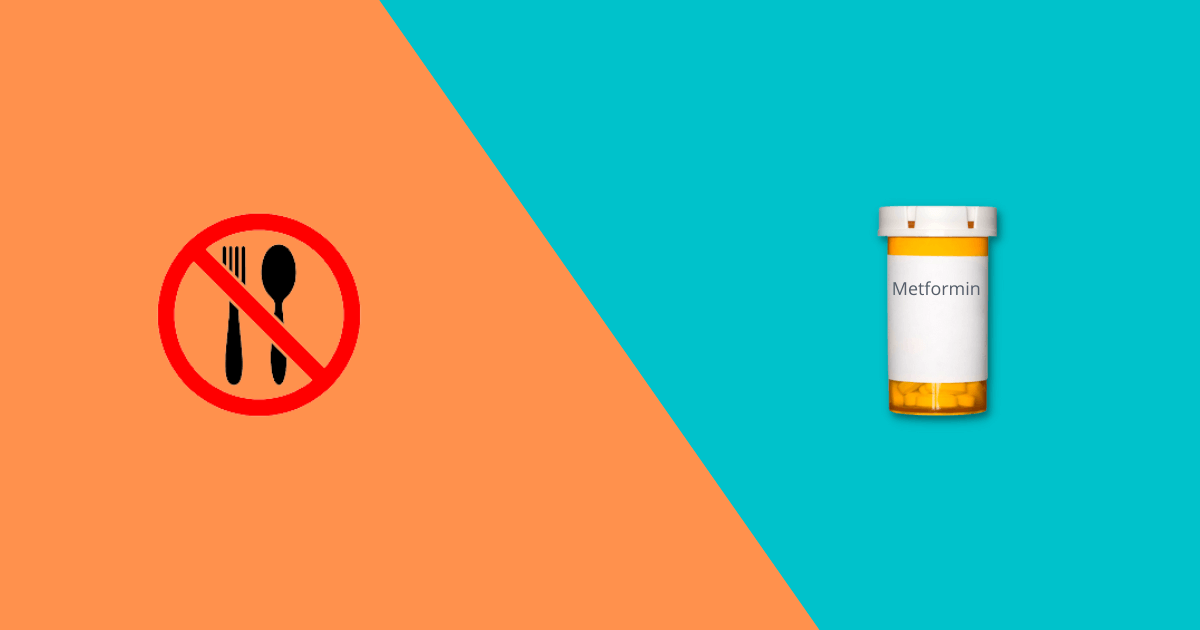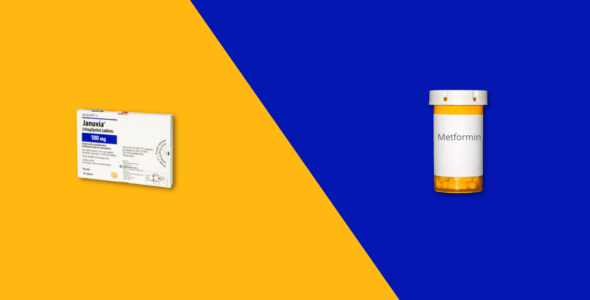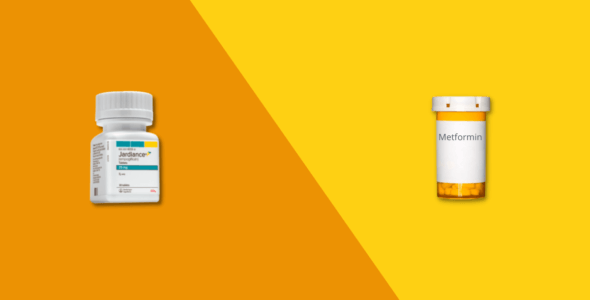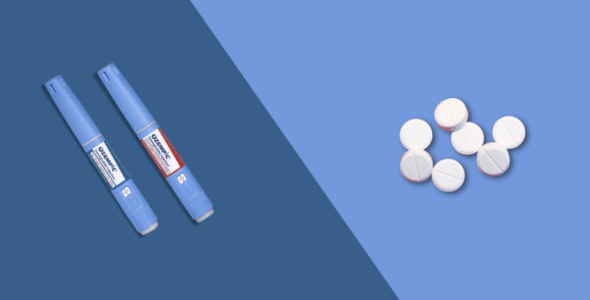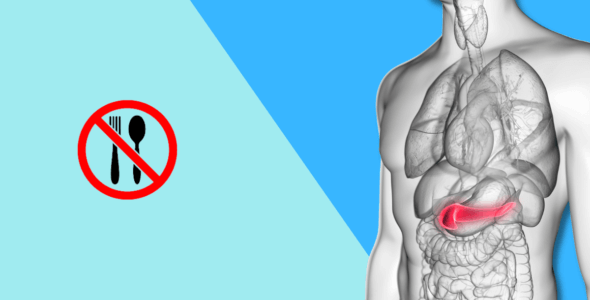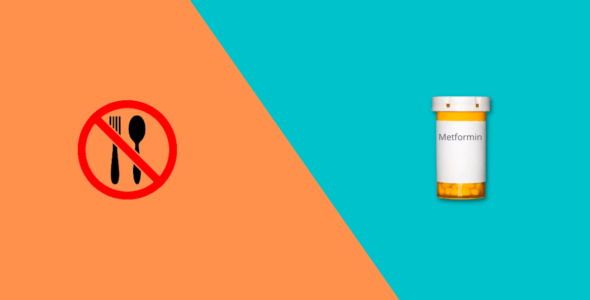What foods to avoid while taking metformin
Key highlights
- There are no specific foods that you need to eat while taking metformin.
- It is generally recommended to eat a healthy diet that is low in fat, sugar, and calories in order to prevent high blood sugar.
- Avoid foods that are high-fat, high-sugar, and calorie-dense like simple and refined carbs (eg. soda, candy, desserts, white bread, pasta, white rice), foods high in saturated and trans fat, sodium, large amounts of alcohol, and grapefruit juice.
- It is generally recommended to eat a healthy diet that is low in fat, sugar, and calories in order to prevent high blood sugar.
Table of contents
- What is metformin?
- How does metformin work?
- Metformin dosage
- What are the side effects of metformin?
- Do some foods make the side effects of metformin worse?
- What foods should I avoid while taking metformin?
- What are the best foods to eat while taking metformin?
- Foods to eat when taking metformin for weight loss
- Metformin drug interactions
- Metformin contraindications
- Who can take metformin?
There are no specific foods that you need to avoid while taking metformin. However, you are recommended to watch what you eat while taking this medication to prevent or reduce the potential side effects.
Here we will discuss what metformin is, how it works, its side effects and interactions, and the foods you should or should not eat.
What is metformin?
Metformin is an FDA-approved first-line treatment for diabetes management in people with Type 2 diabetes mellitus.. It is also used for the prevention of prediabetes. Metformin (brand names include Glucophage) is a generic anti-diabetic medication used as part of a treatment plan for Type 2 diabetes. It can be used alone or in combination with other medications.
Metformin may also be used for the treatment of polycystic ovary syndrome (PCOS), a condition that affects ovulation and may increase androgen production. PCOS increases the risk of developing obesity, depression, infertility, and type 2 diabetes. Metformin has been used to help women with PCOS reduce waist size and help with weight loss. Metformin can also be used for the treatment of metabolic syndrome. Metformin is not recommended for the treatment of type 1 diabetes.
What foods have natural metformin?
Metformin is available naturally in the plant Galega officinalis (French lilac or goat’s rue). It is also present in fruits and vegetables as part of our normal diet and may play a part in the management of diabetes naturally.
How does metformin work?
Metformin is classed as a biguanide and used as a first-line treatment for diabetes because of its mode of action in increasing the body’s insulin sensitivity. Also, metformin does not cause weight gain.
It is used in combination with changes to diet and exercise to improve glycemic control in adults and pediatric patients with type 2 diabetes mellitus. It works by reducing the amount of glucose absorbed from your intestines, decreasing how much glucose is made in your liver, and improving your insulin sensitivity.
Metformin dosage
Metformin is available as an immediate-release or extended-release oral tablet, or as an oral suspension. It is taken with meals, unless your doctor tells you otherwise. Do not crush, chew, or break the extended-release tablet. Swallow it whole. Your doctor may prescribe a glucagon injection kit in case you have severe hypoglycemia. You may also be prescribed extra vitamin B12 while you are taking this medicine.
Always speak with your healthcare provider for medical advice about any changes to your dose so they can monitor and evaluate your condition.
What are the side effects of metformin?
The most common side effects of metformin in clinical trials include:
- Lower blood sugar levels
- Gastrointestinal side effects such as nausea and diarrhea
More serious side effects of metformin include
- Unusual muscle pain
- Problems breathing
- Dizziness, feeling faint
- Feeling tired
- Stomach pain
- Vomiting
- Slow or irregular heart rate
- Lactic acidosis – symptoms include unusual muscle pain, difficulty breathing, stomach pain, dizziness, feeling cold, or feeling very weak or tired
What happens if you take metformin on an empty stomach?
Upset stomach is the most common side effect of taking metformin and taking metformin on an empty stomach may make this side effect worse.
Do some foods make the side effects of metformin worse?
Yes, there are some foods that can make the side effects of metformin worse. These include high-fat foods, sugary foods, and alcoholic beverages. Eating these types of foods can also raise your blood sugar levels.
The most common side effects reported by people who take metformin are nausea and diarrhea. Fortunately, you can prevent or reduce these side effects by taking care of what you eat.
People who are taking metformin and experience nausea should consider doing the following:
- Eating slower
- Eating smaller meals
- Eating foods that are bland and light
- Drinking ice-cold or clear drinks (for example, unsweetened tea or water)
- Avoiding foods that are sweet, greasy, or fried
What foods make you sick with metformin?
Avoid foods high in sugar. These include cakes, biscuits, juice, fizzy drinks, sweets, chocolates, rich desserts, simple and refined carbs such as white bread, pasta and white rice, and saturated and trans fats. These foods will all increase insulin resistance and raise your blood sugar levels.
What foods should I avoid while taking metformin?
There are no specific foods that you need to avoid while taking metformin however, it is recommended to watch what you eat while taking this medication to prevent or reduce the potential side effects. Avoid foods that are high-fat, sugary, and calorie-dense:
- Simple and refined carbs which increase your blood glucose levels. Simple carbs include soda, candy, desserts, white bread, pasta, and white rice
- Foods high in saturated and trans fats
- Sodium
- Avoid large amounts of alcohol as it increases your risk of developing low blood sugar and increases the risk of lactic acidosis (alcohol and metformin together can lead to the build-up of lactic acid in the blood). Reducing alcohol consumption will help to manage your blood sugar levels. Also, drinking alcohol on an empty stomach can reduce your blood sugar. This could be an issue for people using insulin or other diabetes medications that increase insulin levels. One drink per day for women and two drinks per day for men is a safe level of alcohol consumption, however not consuming alcohol may be the best choice
- Grapefruit juice – animal studies found higher amounts of lactic acid production and increased weight gain
- Healthy snacks (granola bars or fruit snacks are actually high in sugar)
What foods cause diarrhea with metformin?
Some foods can make the symptoms of diarrhea worse while taking metformin. These foods include vegetables, garlic, onion, dairy products, foods that produce gas, oily or junk food.
Foods to avoid when taking metformin for PCOS
Avoid any foods that can cause a sudden peak in blood sugar levels, such as candy, soda, sweet desserts, chips, white bread, or crackers.
High fiber foods to avoid on metformin
Avoid foods such as avocado, berries, beans, chia seeds, chickpeas, and oatmeal.
Can I eat sugar while taking metformin?
Eating foods high in sugar will essentially work against what the metformin is being taken for. You are recommended to avoid or at the very least try to limit foods high in sugar.
What are the best foods to eat while taking metformin?
There are no specific foods that you need to eat while taking metformin. However, it is generally recommended to eat a healthy diet that is low in fat, sugar, and calories in order to prevent high blood sugar. This type of diet can help you control your blood sugar levels and lose weight. Focus on meal plans that include eating healthy foods that can raise your blood sugar levels like:
- Fruits – such as apples, oranges, bananas, and grapes
- Nonstarchy vegetables such as broccoli, carrots, and leafy greens
- Complex carbs (carbohydrates) such as oatmeal, whole grain bread, and brown rice, which are high in fiber
- Legumes – such as beans, and lentils
- Lean protein – such as chicken, fish, tofu, and beans
- Healthy fats – such as olive oil, avocados, nuts, and seeds that may help to reduce your risk of a cardiovascular events, including stroke and heart attack
Foods to eat when taking metformin for weight loss
The best advice as with all meals is to maintain a healthy balanced diet, high in protein, and low in fat and carbs. Use whole foods, fruits, vegetables, and grains, and reduce how much processed food you consume.
Metformin and eggs
Eggs are a protein-rich food and that help to manage blood sugar levels in people with diabetes.
Can you eat bananas with metformin?
Bananas contains a combination of carbs that can raise blood sugar, and also beneficial fiber nutrients. The advice is to eat no more than 2 to 3 bananas in a week if you are diabetic.
What to eat for breakfast while taking metformin
Some options for breakfast if you are taking metformin are whole-grain cereal with oatmeal, egg, and flaxseed, or bagels with nut butter, banana, and chia seeds.
Can you drink milk while taking metformin?
You can drink milk with metformin, but to reduce the side effects of diarrhea you are advised to drink either semi-skimmed or low fat milk rather than full fat milk to help limit your carb intake.
Metformin drug interactions
Metformin can interact with other medications. These include:
- Antibiotics
- Diuretics
- NSAIDs
- Corticosteroids
- Treatments for heart failure and high blood pressure
- Contraceptive pills also affect blood sugar levels so a change in dosage may be required
- Antipsychotics
- Anticonvulsants
- Blood thinners
- Other diabetes drugs
Metformin can interact with other medications. Tell your prescribing physician about all your drugs, including vitamins and dietary supplements.
Metformin contraindications
You should not use metformin if you:
- Are allergic to metformin
- Have severe kidney disease
- Have metabolic acidosis or diabetic ketoacidosis
- Are younger than 10 years old
- Are breastfeeding or are planning to breastfeed
Talk to a healthcare professional before using metformin if you:
- Have kidney disease
- Have high ketone levels in your blood or urine
- Have heart disease, or congestive heart failure
- Have liver disease
- Use insulin or other oral diabetes medications
- Have a severe infection
- Have chronic alcoholism
- Are 65 or older
- Are pregnant or are planning to become pregnant
Who can take metformin?
Metformin is typically prescribed to people with type 2 diabetes. Metformin may not be the right diabetes medication for you if you have certain medical conditions or other risk factors that may affect your health. Talk with your doctor about your health history before taking metformin.
For individuals with diabetes, it is important to monitor low blood sugar to prevent symptoms of hypoglycemia (low blood sugar).
Can I take Ozempic with metformin?
Ozempic and metformin are safe to take together and are often prescribed together for the treatment of type 2 diabetes and weight management.
Speak to your healthcare provider if you are taking any other prescription medications, over-the-counter medications, or supplements while taking metformin.
Medically reviewed
A medical professional has reviewed this article.


Jamie Winn, PharmD
Jamie Winn, PharmD
Dr. Jamie Winn received his Doctor of Pharmacy in 2002 from the University of South Carolina College of Pharmacy, Columbia, SC. Jamie is a medical reviewer for NiceRx.

